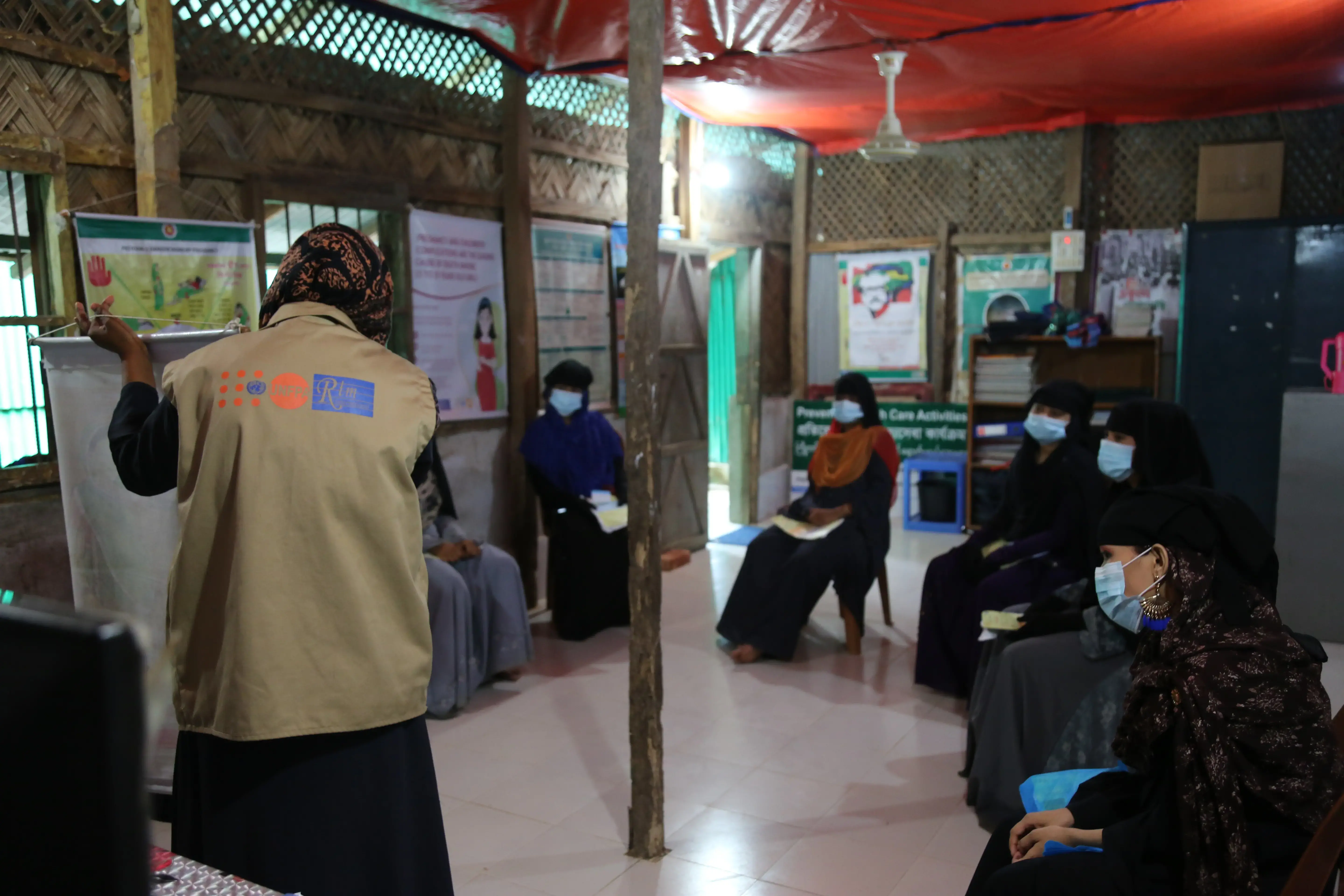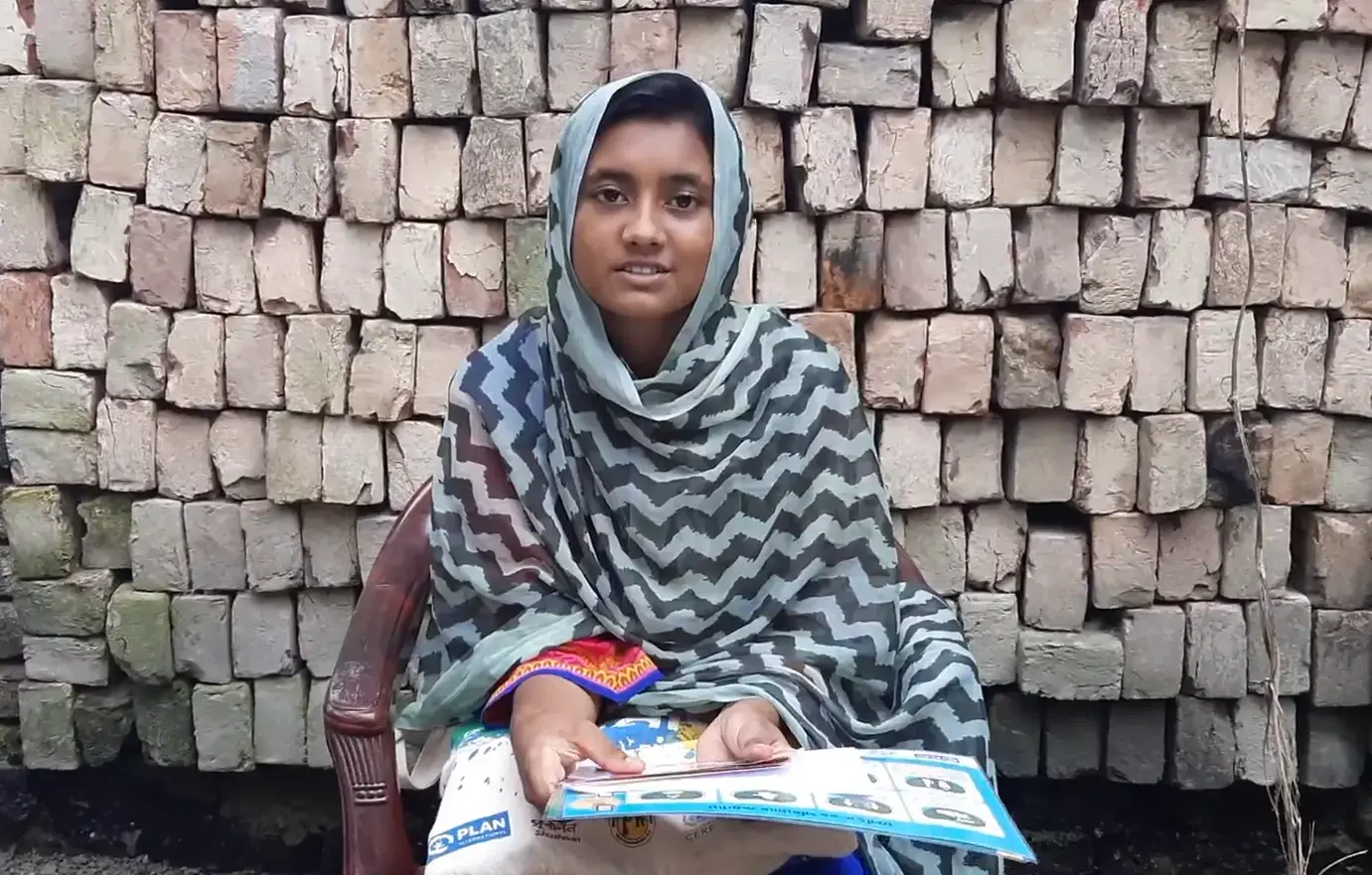Each year on July 11, in order to raise awareness of global population issues, UNFPA celebrates World Population Day. This year, in the context of COVID-19, the theme of the day is “Rights and choices are the answers: whether baby boom or bust, the solution lies in prioritizing the reproductive health and rights of all people.”
By placing overwhelming pressure on health systems around the world, the ongoing COVID-19 pandemic has severely affected women’s access to sexual and reproductive health services. Lockdowns, anxiety around attending health facilities, lack of accurate information, and concentration of human and financial resources around COVID-19 management, have globally affected the sexual and reproductive health of women and girls.
In low and middle-income countries such as Bangladesh, an increase in unintended pregnancies may be expected, particularly among the most vulnerable groups. There is already some indication of this happening in Bangladesh, as contraception consumption trends have gone down since March 2020. In addition, anecdotal evidence suggests that child marriages may be on the rise due to the economic hardships the pandemic has caused to families around the country. This may in turn lead to an increase in adolescent pregnancies, the rate of which is already high in Bangladesh.
In these circumstances, UNFPA recommends leaders to prioritize the sexual and reproductive health and rights of all people. We must consider access to sexual and reproductive health services, including family planning, as a fundamental right that belongs to everybody. Women must continue to be able to choose if and when they want to get pregnant.
This is precisely the approach that UNFPA and the Ministry of Health and Family Welfare have taken in their response to the pandemic so far. Together, we have deployed hundreds of doctors, nurses and midwives to health facilities around the country, including in hard-to-reach areas, to ensure that essential maternal health, family planning and other reproductive and sexual health services remain available. We have also tried to lower the threshold for people to access these services by making health facilities safer through the establishment of triages and separate delivery rooms. Furthermore, we have expanded the availability of telemedicine services to ensure that those who are not able to reach health facilities continue to have access to life-saving information on sexual and reproductive health matters.
In addition, we have mounted an effort to address the ‘’shadow pandemic’’ of increasing gender-based violence. Through our Women Help Desks operating in police stations around the country, over ten thousand women have received support after experiencing gender-based violence. As health facilities are often the first place where survivors seek help, we have also conducted trainings for health professionals to ensure they are able to provide medical support to survivors of gender-based violence and refer them for legal support.
UNFPA has also continued to work with the respective government entities as well as civil society organizations to prevent child marriages and adolescent pregnancies. All 122 Nari Nirjaton Protirodh Committees of the Government have remained active throughout the pandemic and continued to prevent cases of child marriage in communities across the country. Furthermore, we have continued to actively host awareness raising sessions in communities about the harms of child marriage and adolescent pregnancy.
On World Population Day 2021, we reiterate our commitment to ensuring that these joint efforts are both sustained and expanded as we continue to fight the pandemic for the second year. Furthermore, UNFPA remains determined to gather demographic intelligence and disaggregated population data to support the Government of Bangladesh in crafting national policies that will enable it to harness the demographic dividend, advance the ICPD Programme of Action and achieve the Sustainable Development Goals.
Together, we will continue to deliver a resilient, agile and thriving Bangladesh where every woman and girl live in dignity and safety and every pregnancy is wanted, every childbirth is safe, and the potential of every young person is realized.
Dr. Asa Torkelsson
UNFPA Representative in Bangladesh




